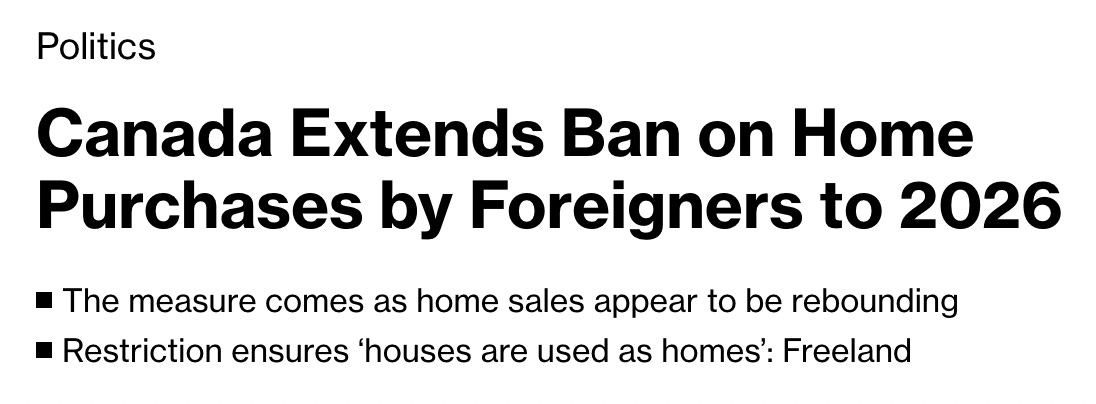It's Okay to Put Citizens First.
"America First" is a dog whistle, but American politicians prioritizing the interests of Americans is good.
Most people know that the language of “America First” has an appalling history associated with nativism and antisemitism, which should be rejected by all serious political actors, but that doesn’t mean mainstream politicians shouldn’t think in terms of privileging the interests of United States citizens over those they don’t represent. As Matthew Yglesias wrote in November:
All people have equal moral worth, but democratic self-government requires the American government to prioritize the interests of American citizens.
Democrats need to become more comfortable talking about how they will prioritize the well-being and welfare of U.S. citizens — I get the sense that some Democrats are even hesitant to use the word “citizen” — when designing policies and writing laws. As David Leonhardt recently wrote in the New York Times, this kind of thinking in Denmark has been key to preventing the rise of right-wing populists and preserving stable politics.
What might this look like in practice? Let’s look at housing and health care.
Housing policy — and political rhetoric about it — should prioritize long-term shelter for Americans over foreign investors and tourists. This means deploying restrictions on non-resident foreign ownership of residential real estate and banning — or severely restricting — the online vacation rental platforms that foreign investors often choose as an alternative to renting their properties to people in need of stable homes. New Zealand, Singapore, Canada, Denmark, Switzerland, and other democracies all have — or had — different policies restricting residential real estate purchases by non-citizens.

How about health care? The United States is the only advanced economy without a universal health care system. Achieving universal coverage should be a Democratic Party priority, but for many years, certain Democrats have unnecessarily complicated the issue by suggesting undocumented migrants would qualify for benefits under a new system. In 2019, Kamala Harris repeatedly said irregular migrants would be able to enroll in a new Medicare for All system:
As a senator in 2019, Ms. Harris was one of the sponsors of a bill that would have given free and generous health coverage to anyone residing the United States, regardless of their citizenship status. The bill, called Medicare for All, would have remade the American health care system into a taxpayer-financed single-payer system that did away with premiums and co-payments.
During a Democratic primary debate that year, a moderator asked the 10 candidates onstage to raise their hands if their health plans would cover immigrants who were in the country illegally. Ms. Harris — alongside the nine other participants — raised her hand.
When Jake Tapper asked Harris about enrolling “people in this country illegally” in Medicare for All in 2019, here’s how Harris responded:
Let me just be very clear about this. I am opposed to any policy that would deny, in our country, any human being, from access to public safety, public education, or public health, period.
Here’s how I would have responded:
We are a compassionate nation and already have laws, such as the Emergency Medical Treatment and Active Labor Act, that ensure nobody in need is turned away from our hospitals. But enrollment in Medicare for All will be limited to citizens and residents with legal status.
Harris is correct that we shouldn’t deny any individual — especially children — access to basic public services, regardless of their citizenship or residency status. But that doesn’t mean those services have to be provided in the same way to non-citizens and citizens, or to non-citizen children versus non-citizen adults. Democrats should always be on the side of human rights and international law, regardless of immigration status, but it’s perfectly normal for citizens, legal residents, and asylum-seekers to have different eligibility for certain social policies than irregular migrants.
In the Nordic countries, for example, citizens, fellow Nordic citizens, fellow European Union and European Free Trade Area citizens, legal non-EU residents, and asylum-seekers all have slightly different rights, in terms of political participation, access to public services, and the ability to purchase real estate. These distinctions exist in nearly all countries. And note that many countries also choose to prioritize the interests of neighboring citizens over those from further afield — that’s the logic of supranational blocs (e.g. MERCOSUR, ASEAN, and the EU). Different privileges for different people really are okay.
Despite what The Groups may try and say, it’s not fascism for a Democratic presidential candidate to use clear language about eligibility for new social programs, voting, and participation in housing markets. As a progressive liberal who supports maximizing freedom for as many people as possible, it pains me to be thinking like this. I wish anyone — fellow American or citizen of the world — who wants to live in Los Angeles could buy a home there. I wish anyone who wants to access our high-tech health system could do so on demand. But Americans rightfully expect that the politicians they entrust with their votes will privilege their interests when complicated trade-offs present, such as a housing shortage.
It may be uncomfortable for liberals to think about politics this way, but the reality is that elections are decided by citizens. And, if Democrats want to win more elections in the future, they must be more explicit about whose interests they will prioritize. The alternative is losing to MAGA Republicans who make superficial promises to desperate Americans and then, once in power, privilege the rich while enacting punishing measures against irregular migrants and non-Americans.
As Democrats reflect on how they will respond to Donald Trump’s second term, they must understand that “America First!” and putting Americans first are two different things.



I do want to put one little asterisk on the healthcare thing: undocumented migrants should be allowed to benefit from public-health measures aimed at controlling infectious disease, like vaccines. That's an instance in which "taking care" of migrants is in the self-interest of the citizenry.